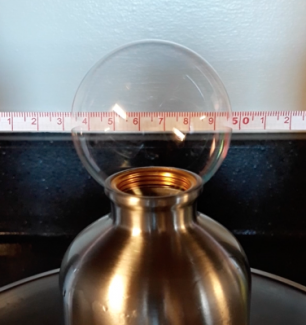In the spring of 2020, due to the COVID-19 pandemic, colleges and universities across the world rapidly transitioned classes and activities to be conducted remotely. This transition presented particular challenges for laboratory courses. We are currently conducting research to document the variety of creative approaches employed by physics lab instructors, measure the impact of the transition to remote teaching on student learning and students' beliefs about experimental physics, and to assess the effectiveness of remote lab teaching strategies. We define remote labs to encompass any continued instruction of a course that was considered a lab course prior to the rapid transition to remote work, in which the instructor and all students were no longer present at the same location.
About the Data
The data primarily come from: (1) a survey sent out to lab instructors (the instructor survey) after the Spring and Fall 2020 terms, (2) a supplementary survey appended to the standard E-CLASS instrument administered to over 5000 students in over 50 courses (the student survey) after the Spring 2020, Fall 2020, and Spring 2021 terms, and (3) interviews conducted with 11 instructors and 18 students after the Spring 2020 term. The instructor survey contained both closed- and open-response questions that asked instructors about their experience transitioning to remote lab instruction. The student survey also included both closed- and open-response questions, asking students about their experiences with remote lab instruction and how it impacted their learning. The interviews with instructors and students covered the same topics, but allowed us to gain a more in-depth understanding of their teaching and learning circumstances.
Results and Ongoing Work
From a sample of introductory physics lab courses whose students completed the E-CLASS in both 2019 and 2020, we investigated the impact of the transition to remote teaching on students' E-CLASS scores. We find that total E-CLASS scores were not lower in 2020 compared to 2019, but that there is some variation in the mean scores on individual questions in Fall 2020 when compared to previous years, illustrating both intentional and unintentional consequences of modified instruction.
To complement our quantitative investigations of introductory courses, we conducted a case study analysis of one advanced lab course that transitioned from traditional prescriptive labs to more open-ended projects in parallel to the transition from in-person to remote teaching. Both students and instructors report many positive aspects of this remote course, and we triangulate among several data sources to gain an in-depth understanding of their experiences.
Ongoing work includes: (a) documenting the breadth of approaches taken by instructors and their perspectives on successes and challenges of remote lab teaching, (b) investigating the impacts of various remote lab activities on students' E-CLASS scores, and (c) investigating the impacts of various remote lab activities on other aspects of the students' experiences, such as enjoyment of the course and self-reported learning outcomes.



 The Physics Frontiers Centers (PFC) program supports university-based centers and institutes where the collective efforts of a larger group of individuals can enable transformational advances in the most promising research areas. The program is designed to foster major breakthroughs at the intellectual frontiers of physics by providing needed resources such as combinations of talents, skills, disciplines, and/or specialized infrastructure, not usually available to individual investigators or small groups, in an environment in which the collective efforts of the larger group can be shown to be seminal to promoting significant progress in the science and the education of students. PFCs also include creative, substantive activities aimed at enhancing education, broadening participation of traditionally underrepresented groups, and outreach to the scientific community and general public.
The Physics Frontiers Centers (PFC) program supports university-based centers and institutes where the collective efforts of a larger group of individuals can enable transformational advances in the most promising research areas. The program is designed to foster major breakthroughs at the intellectual frontiers of physics by providing needed resources such as combinations of talents, skills, disciplines, and/or specialized infrastructure, not usually available to individual investigators or small groups, in an environment in which the collective efforts of the larger group can be shown to be seminal to promoting significant progress in the science and the education of students. PFCs also include creative, substantive activities aimed at enhancing education, broadening participation of traditionally underrepresented groups, and outreach to the scientific community and general public.